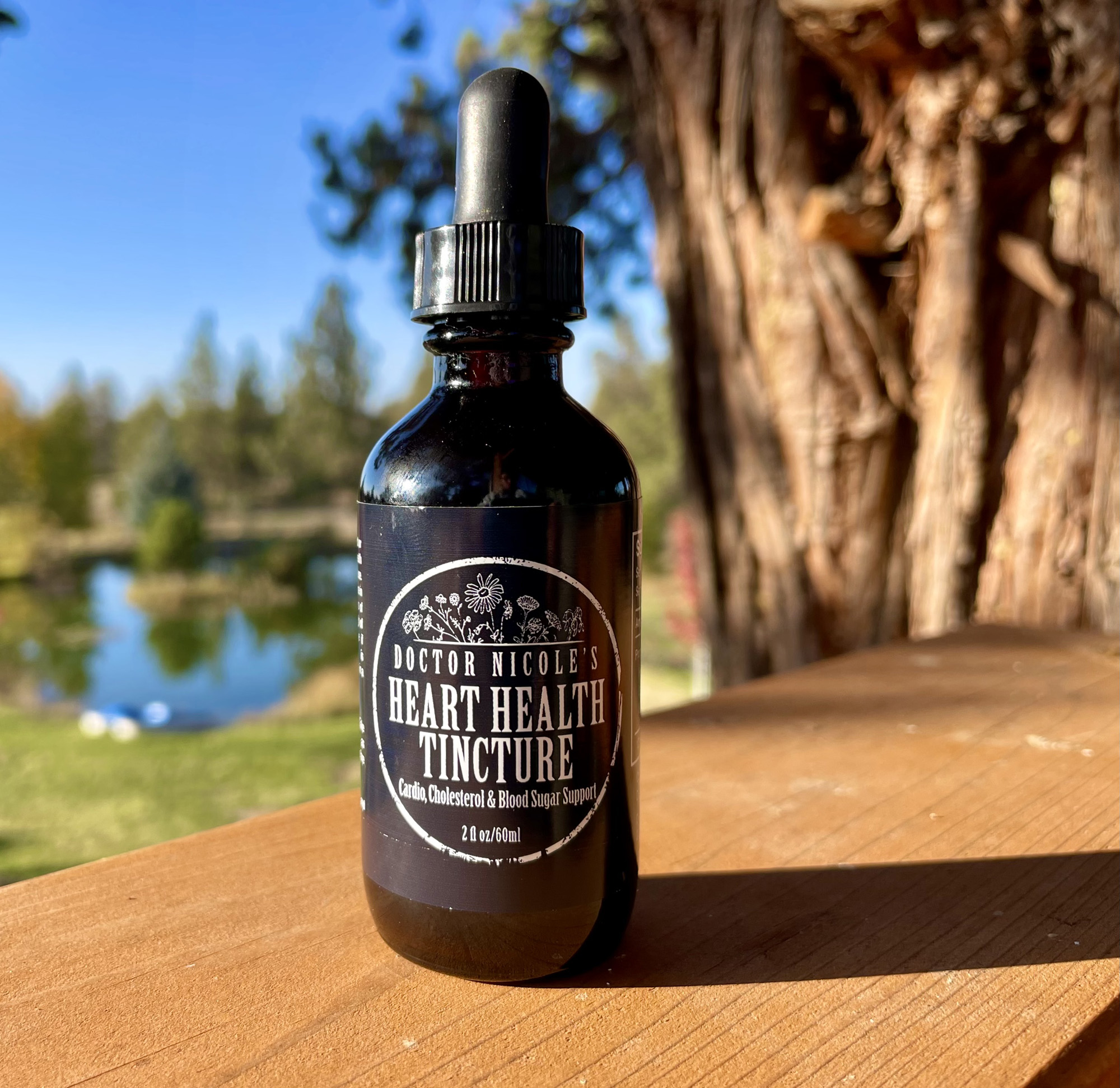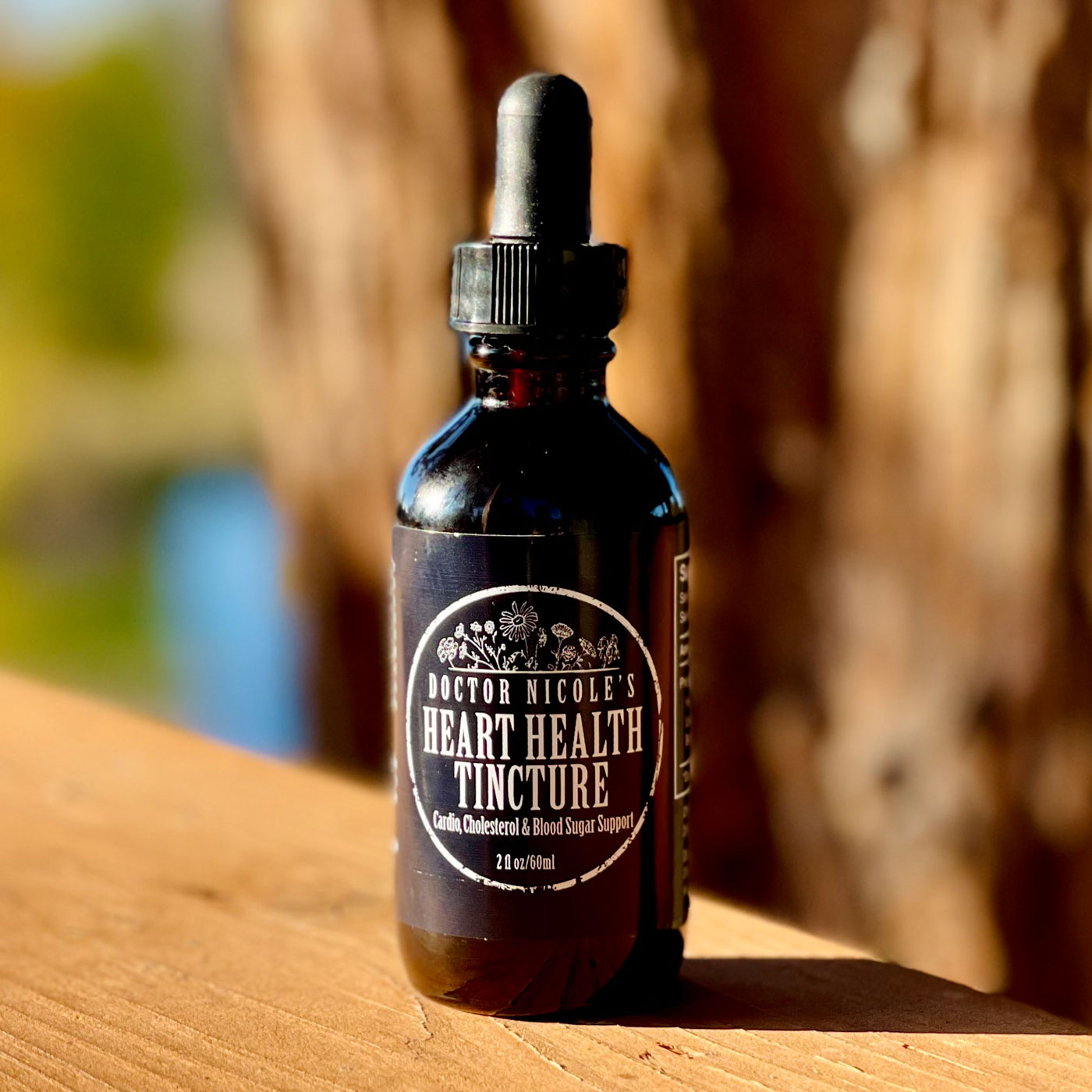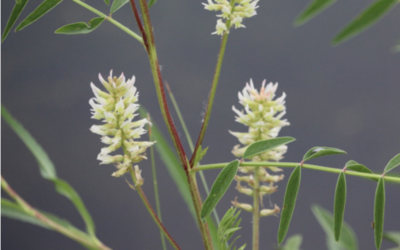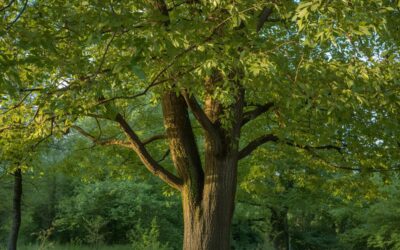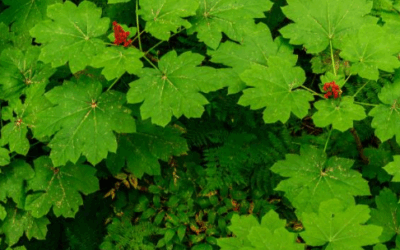Ancient Adaptogen for Stress, Hormonal Balance, and Skin Health
A traditional adaptogen used in Ayurvedic medicine for over 3,000 years, holy basil (tulsi) helps reduce anxiety, protects against the harmful effects of stress, and helps balance the adrenal glands and stress hormones. This time-tested botanical also addresses high blood sugar. But did you know it is also a powerful anti-inflammatory, guards against cancer, and helps to reverse sun damage?
Let’s dive into what the research has to say about this versatile medicinal plant and how it can help to alleviate a host of conditions — from skin damage and cancer to heart disease and metabolic disorders.
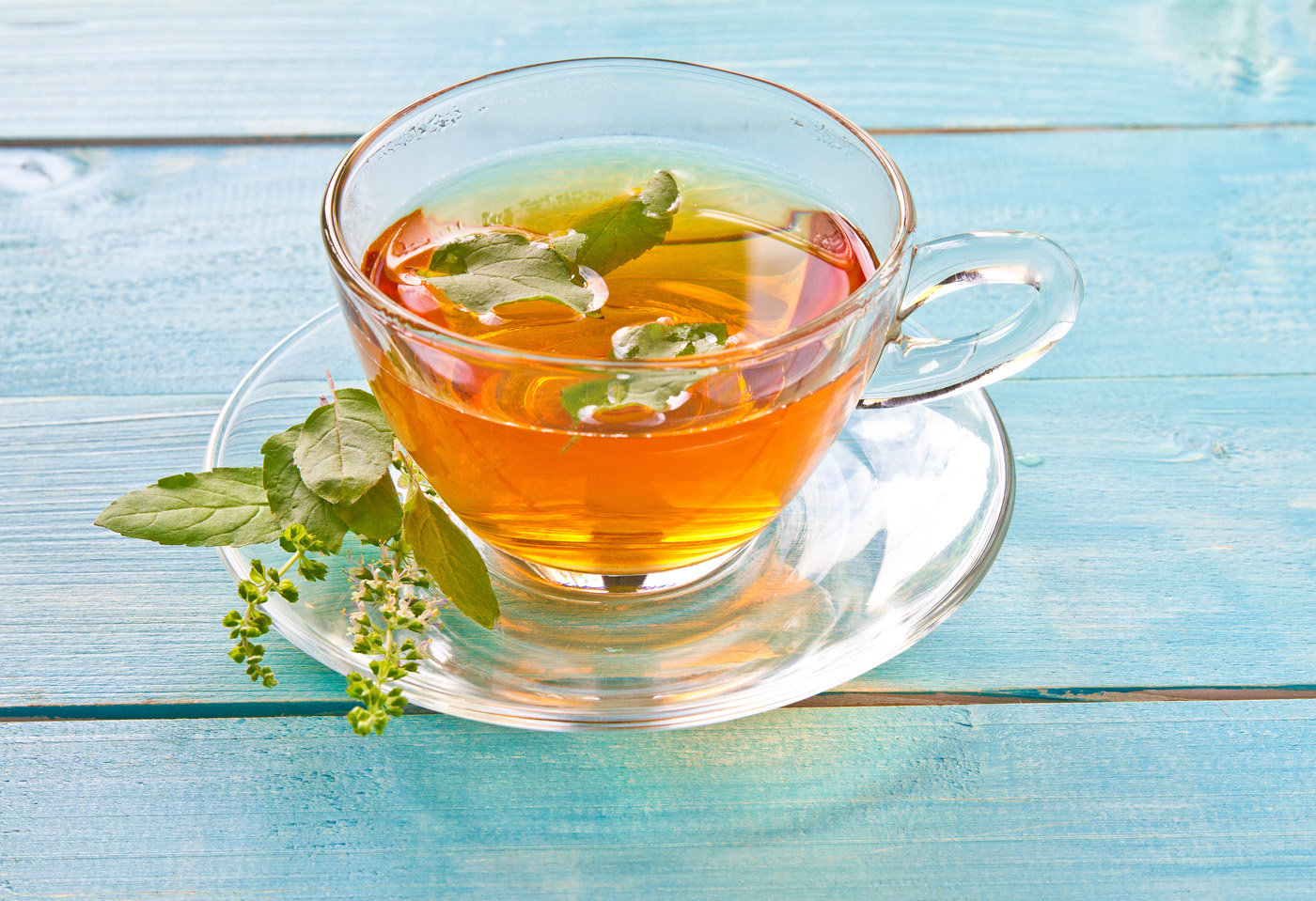
Science-Backed Benefits
Holy basil/tulsi (Ocimum tenuiflorum/Ocimum sanctum) — not to be confused with culinary basil (Ocimum basilicum) — is a medicinal herb that originates from India and grows in East Asia, Australia, and other surrounding tropical locations. But tulsi isn’t just a folk remedy, it is also a well-researched herbal remedy. Most studies on tulsi have been conducted in laboratory settings, however, a 2017 systematic review of 24 clinical studies identified several positive benefits in humans.1 While the plant has a wide range of uses, for our purposes here, we will focus on three specific areas of benefit: metabolic, neurocognitive, and dermal health.
Metabolic — Due to its outstanding antioxidant properties, tulsi has been shown to significantly lower blood sugar levels, improve blood pressure and LDL “good” cholesterol, and cool chronic inflammation. Because of this, the herb may be helpful for those with diabetes, high cholesterol, obesity, fibromyalgia, or arthritis.
Neurocognitive — A revered adaptogen, tulsi is an excellent option to help negate the harmful effects of stress, while also addressing anxiety, depression, and nervous exhaustion/fatigue. One study found that tulsi helped to boost energy and manage the emotional and physical stress of the participants.1,2,4 Researchers suspect the calming and immunomodulatory effects of tulsi may involve gamma-aminobutyric acid (GABA) pathways in the brain.8
Dermal Health — Phytochemicals found in the plant — including eugenol, rosmarinic acid, carnosic acid, β-sitosterol, luteolin, apigenin, and myretenal — have been shown to be a powerful defense against skin cancer and sun damage.3 What’s more, researchers have established that tulsi induces apoptosis and inhibits angiogenesis and metastasis of skin, liver, oral, and lung cancers.4,7 When applied topically, tulsi may also support healthy skin aging, counteract acne, and soothe eczema because of its antioxidant, antibacterial, and anti-inflammatory properties.6,7,8
Safety
While generally considered safe for most people when taken within the recommended dosage of 500 mg- 3,000 mg per day, tulsi may cause nausea or diarrhea in some people. Symptoms of hypothyroidism may worsen with the use of the herb as it can lower levels of the thyroid hormone thyroxine. Do not use it within two weeks of a scheduled surgery as it can slow down blood clotting and increase the risk of bleeding. If you are allergic to members of the Lamiaceae (mint) family, avoid using tulsi as it can cause breathing difficulties, itchiness, and rash. Do not use it if pregnant or breastfeeding, as safety has not been established.
If you take medications, I recommend working with a knowledgeable naturopathic or integrative medicine physician before using tulsi — especially those for lowering blood pressure, blood thinners, cholesterol, diabetes, as well as immune support medications and relaxants.
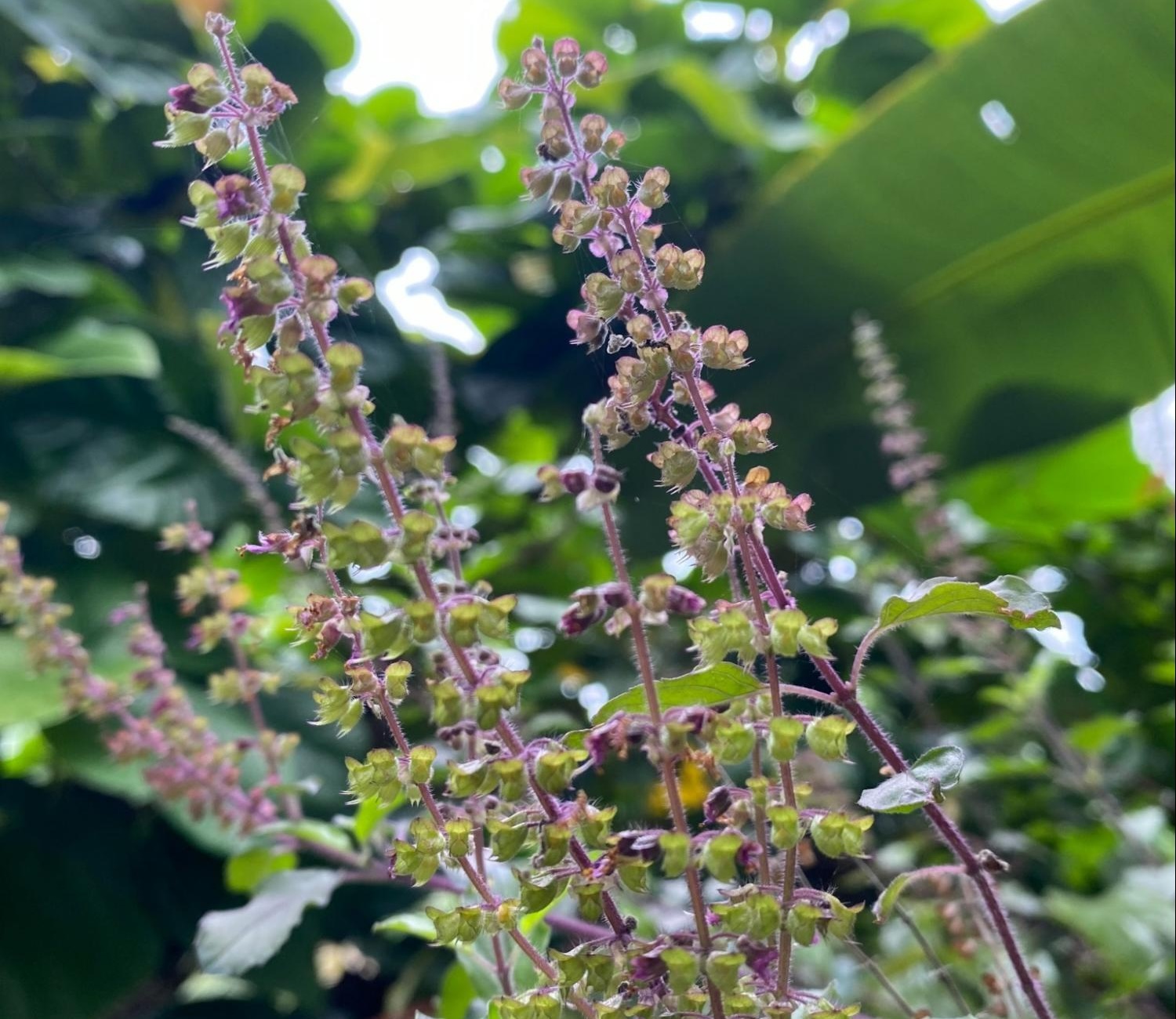
Why Tulsi Is a Smart Addition to Your Daily Health Routine
If you would like to give tulsi a try, you can find this exceptional herb in our Heart Health Blend, along with concentrated extracts of hawthorn, fenugreek, and bilberry. These synergistic herbs encourage cardiovascular and metabolic health by regulating blood glucose, lowering LDL cholesterol, reducing inflammation, and supporting healthy blood pressure levels. This powerful blend also improves circulation and supports vision and healthy eyes.
EXCELLENT RESULTS!
“Love it! Even the taste is pretty good! But for me, it stopped my heart from skipping beats like a-fib. I couldn’t be more satisfied!” -Vicki
This targeted formula combines four exceptional botanicals with well-documented health and cardiovascular benefits. Stop by my apothecary today and see the difference this blend can make for your metabolic health and more!
Nicole Apelian
Nicole’s Apothecary Products in this Post
References
- Jamshidi, N., & Cohen, M. M. (2017). The Clinical Efficacy and Safety of Tulsi in Humans: A Systematic Review of the Literature. Evidence-based complementary and alternative medicine : eCAM, 2017, 9217567. https://doi.org/10.1155/2017/9217567
- “The Benefits of Holy Basil (Tulsi), Cleveland Clinic | Health Essentials, November 30, 2023. https://health.clevelandclinic.org/benefits-of-holy-basil
- Baliga, M. S., Jimmy, R., Thilakchand, K. R., Sunitha, V., Bhat, N. R., Saldanha, E., Rao, S., Rao, P., Arora, R., & Palatty, P. L. (2013). Ocimum sanctum L (Holy Basil or Tulsi) and its phytochemicals in the prevention and treatment of cancer. Nutrition and cancer, 65 Suppl 1, 26–35. https://doi.org/10.1080/01635581.2013.785010
- Kumar, P., & Patel, D. (2023). Ocimum Sanctum: An All-Round Treatment for Cancer?. Alternative therapies in health and medicine, 29(4), 253–257.
- Wantida Chaiyana, Songyot Anuchapreeda, Chanun Punyoyai, Waranya Neimkhum, Kuan-Han Lee, Wei-Chao Lin, Shang-Chian Lue, Helmut Viernstein, Monika Mueller,
- Ocimum sanctum Linn. as a natural source of skin anti-aging compounds, 2019. https://doi.org/10.1016/j.indcrop.2018.10.081.
- Cohen M. M. (2014). Tulsi – Ocimum sanctum: A herb for all reasons. Journal of Ayurveda and integrative medicine, 5(4), 251–259. https://doi.org/10.4103/0975-9476.146554
- Association for the Advancement of Restorative Medicine, Holy Basil, Tulsi (Ocimum sanctum). https://restorativemedicine.org/library/monographs/holy-basil/


